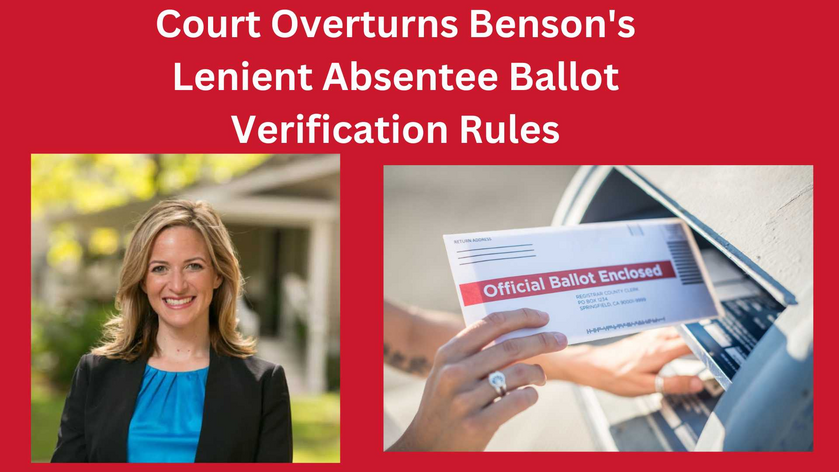LANSING, Mich. In a significant ruling, the Michigan Court of Claims declared that key provisions of the state's guidance manual on absentee ballot signature verification are unconstitutional. The court's decision underscores ongoing legal debates about election laws and the balance between preventing fraud and ensuring voter access.
The court ruling struck down parts of Michigan's guidelines for verifying absentee ballot signatures, stating they conflicted with state laws. This decision mandates that election clerks must strictly verify each signature without assuming validity, emphasizing the need for rigorous adherence to legal standards in the absentee voting process.
Click here to read the court ruling.
Support my independent journalism by becoming a paid subscriber. I walked away from the MSM and need your help to keep doing this. It’s $5 a month. You can quit at any time.
Background of the Case
The case arose from a lawsuit challenging the December 2023 guidance manual issued by Michigan election officials. This manual included an "initial presumption of validity" for the verification of signatures on absentee ballot applications and envelopes. Plaintiffs argued that this presumption conflicted with the Michigan Constitution and the state's election laws, specifically citing Michigan Compiled Laws (MCL) 168.766a and other related statutes.
Court's Findings
Judge Christopher P. Yates, who presided over the case, delivered a detailed opinion addressing the plaintiffs' concerns. The court found that the "initial presumption of validity" in the signature verification process was incompatible with the Constitution and laws of Michigan. This ruling mandates the removal of these provisions from the guidance manual.
In particular, the court highlighted that:
The "initial presumption" undermines the statutory requirements for verifying signatures, potentially allowing invalid ballots to be counted.
The provisions in Rule 168.22, which also referenced an "initial presumption of validity," must be excised from the guidance manual to comply with state laws.
Upheld Provisions
Despite these findings, the court upheld Rule 168.24 of the guidance manual. Plaintiffs had claimed that Rule 168.24 also conflicted with Michigan law, but the court found this rule to be permissible under the state constitution and statutes.
Conclusion and Next Steps
The court's ruling provides a mixed outcome for both parties. While plaintiffs succeeded in challenging the "initial presumption of validity," their request for declaratory relief concerning Rule 168.24 was denied. Judge Yates invited the plaintiffs to submit a proposed judgment to formalize the court's rulings and, if appropriate, close the case.
This decision marks another chapter in the broader national discourse on election integrity and voter access. It underscores the need for clear and constitutionally sound guidelines in the administration of elections, particularly in the verification of absentee ballots.
Implications
The ruling may lead to changes in how absentee ballots are processed in Michigan, with potential ripple effects in other states with similar laws. Election officials will need to revise their procedures to ensure compliance with the court's directives, balancing the prevention of voter fraud with the facilitation of voter participation.




















